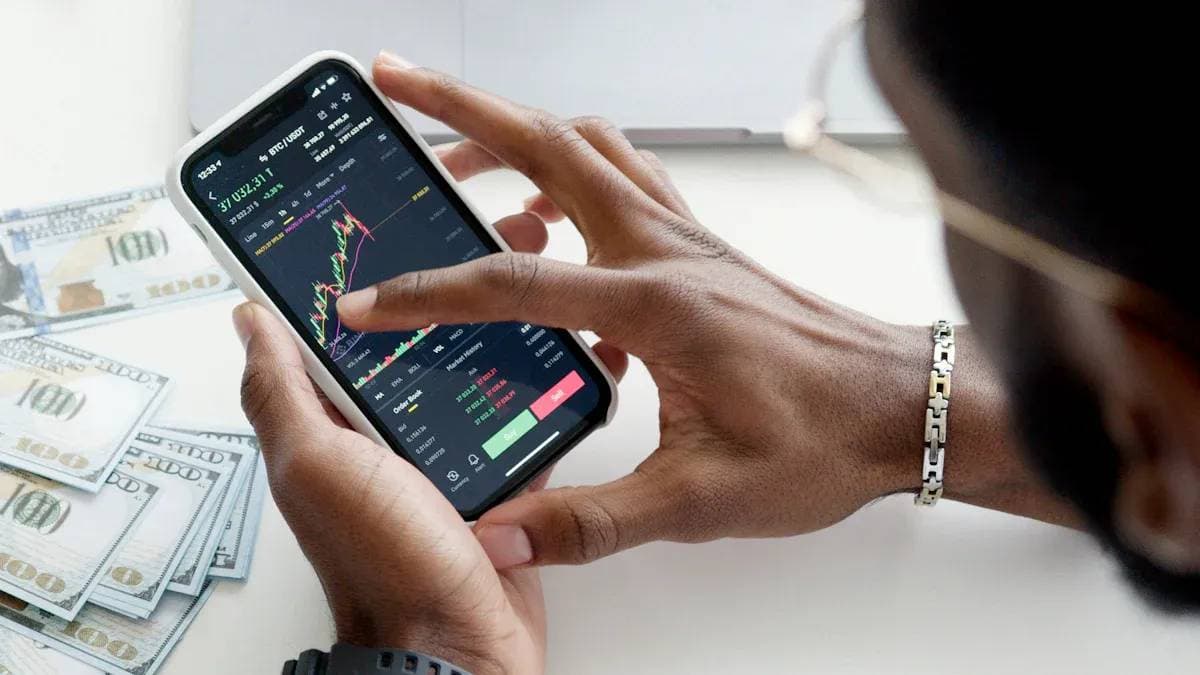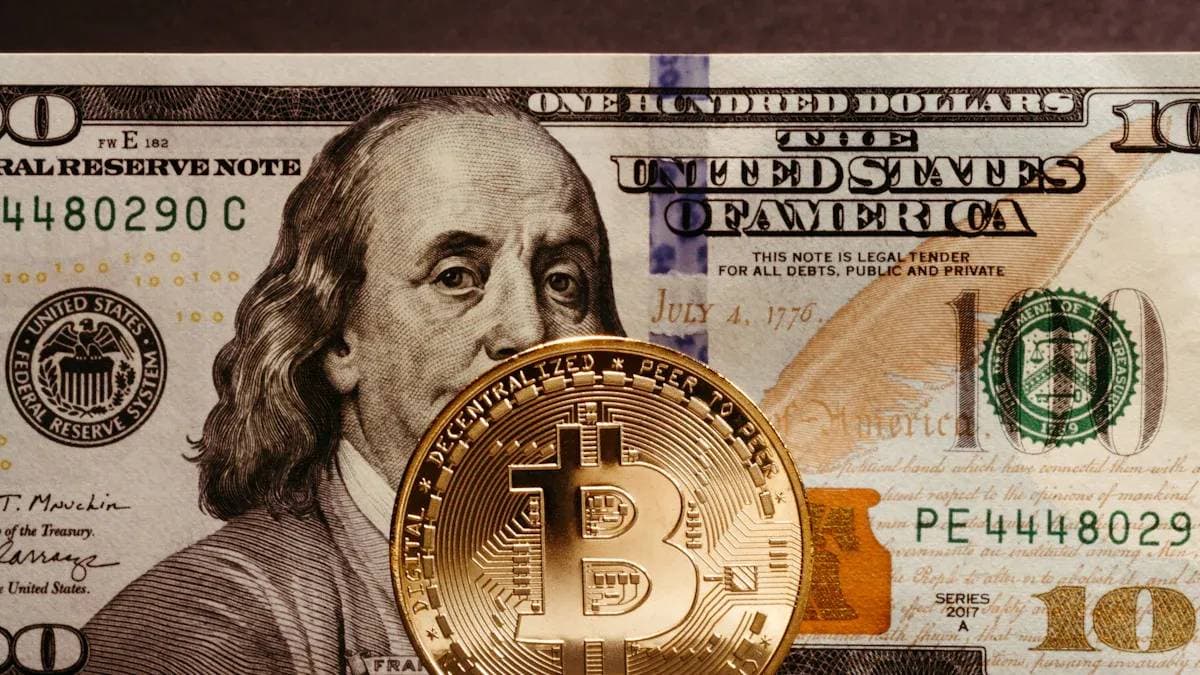- EasyCard
- Trade
- Help
- Announcement
- Academy
- SWIFT Code
- Iban Number
- Referral
- Customer Service
- Blog
- Creator
Complete Guide to Sending Money from the United States to Indonesia: Best Methods, Fees, and Options
In today’s globalized world, cross-border remittance has become increasingly common. With the rise in international business activities and the need for cross-border support among families around the world, many people need to send money from the United States to Indonesia. Whether for family support, bill payments, business transactions, or other purposes, how to complete remittances securely and quickly is a key concern for many.

This article delves into various methods of sending money from the United States to Indonesia, including different remittance channels, tips for choosing reliable service providers, key considerations, fees, exchange rates, and relevant policies. Through this guide, you will gain a comprehensive understanding of cross-border remittances, helping you transfer funds effectively and ensuring that the money arrives safely and on time.
Overview of Remittance Methods
There are several ways to send money from the United States to Indonesia. The remitter can choose the appropriate method based on their needs, the amount of money, and the urgency of the transfer. Here are some common methods:
Bank Transfers
Bank transfers are the most traditional and commonly used remittance method. Through a bank transfer, the remitter can transfer funds directly from a U.S. bank account to a bank account in Indonesia. The process typically involves filling out a remittance form, providing the recipient’s bank details (including the bank name, account number, SWIFT code, etc.), and then the bank handles the international transfer.
Advantages:
- Highly secure, regulated by banks
- Suitable for large transfers
- Clear transaction records for tracking
Disadvantages:
- Higher fees, typically ranging from $20 to $50 per transfer, depending on the bank and amount
- Slower processing time, usually 1-3 business days
- Exchange rates may not be the most favorable, and additional charges may apply
Online Remittance Services
With the development of technology, online remittance services (such as PayPal, TransferWise, Remitly, etc.) have become increasingly popular. These platforms offer convenient cross-border remittance services, allowing funds to be transferred using an email address or phone number, and transfers are usually faster.
Advantages:
- Fast transfers, with some platforms offering real-time remittance
- Easy to use, with transfers made via mobile phones or computers
- Competitive exchange rates and lower fees
Disadvantages:
- Transfer limits, suitable for medium to small transfers
- The recipient needs to have an online account
- Some platforms may not be available in specific countries
Cash Pickup Services
For recipients without a bank account or when funds are urgently needed, cash pickup services are a good choice. Companies like Western Union and MoneyGram offer cash pickup services, where the remitter can send funds to a designated location, and the recipient can pick up the cash from an agent in Indonesia.
Advantages:
- No need for the recipient to have a bank account, direct cash pickup
- Ideal for urgent transfers, with funds available in minutes
- Extensive coverage, available in most regions and countries worldwide
Disadvantages:
- Higher fees, which vary by amount and location
- Transfer limits, especially in some regions
- The recipient must pick up the cash from a designated location, which may not always be convenient
Mobile Wallet Transfers
In recent years, mobile wallets (such as Alipay, WeChat Pay, Gopay, etc.) have become a new trend for cross-border remittance. Through these platforms, users can transfer funds to the recipient’s mobile wallet, and the recipient can directly make payments or withdraw cash. Such services generally only require the recipient’s email, phone number, or wallet account number.
Advantages:
- Fast and convenient, with near-instant transfers
- Integrated remittance and payment functions, ideal for online shopping, bill payments, etc.
- Relatively low fees, suitable for small transfers
Disadvantages:
- Transfer limits, typically lower
- Dependent on whether the recipient has a supported mobile wallet
- Some platforms may have limitations on usage in Indonesia
Choosing a Reliable Service Provider
When selecting a remittance method, choosing a reliable service provider is essential to ensure that funds are transferred securely and promptly. Here are some tips for choosing the right remittance provider:
Look for Reputable Companies
Regardless of whether you choose bank transfers or online remittance services, always opt for a reputable company. You can check customer reviews, ratings on websites, and social media for insights into the provider’s reputation. Most online remittance platforms offer real-time customer support to resolve issues quickly.
Compare Fees and Exchange Rates
Different remittance service providers have different fee structures. Some platforms offer free transfers or low fees, while others charge higher fees. Always compare the fees and exchange rates across different platforms to ensure your funds are transferred at the best possible rate and terms.
Ensure Fund Security
Ensure that the remittance method you choose employs encryption technology and security protocols to prevent unnecessary risks. Most well-known remittance platforms provide transaction guarantees and fund insurance, allowing users to track the transfer process and ensure transparency and security.
Age Restrictions and Cancellation Policies
When remitting funds, it’s important to understand the related age restrictions and cancellation policies:
Age Restrictions Typically, the remitter needs to be at least 18 years old to use most remittance services, while the recipient usually has no age restrictions. However, individuals under 18 can still remit funds with the assistance of a parent or guardian.
Cancellation Policies Most remittance services allow cancellations during the transfer process or within a specific time after completion. However, cancellations may incur a fee, and the process can vary depending on the service provider. It’s advisable to thoroughly review the cancellation policies before initiating a remittance to avoid unnecessary complications.
Conclusion
In summary, while sending money from the United States to Indonesia is relatively straightforward, it is essential to carefully consider the remittance method and service provider. By understanding the advantages and disadvantages of each method, along with fees, exchange rates, and processing times, remitters can choose the best option that suits their needs, ensuring secure and timely transfers.
In today’s globalized economy, cross-border remittance has become increasingly important. Choosing the right service provider, especially for international transfers, can significantly improve the efficiency and security of the funds transfer process. BiyaPay, as a convenient remittance tool with no transfer limits, offers a reliable option with its wide coverage and efficient local remittance services. It helps users complete international fund transfers smoothly and securely.
*This article is provided for general information purposes and does not constitute legal, tax or other professional advice from BiyaPay or its subsidiaries and its affiliates, and it is not intended as a substitute for obtaining advice from a financial advisor or any other professional.
We make no representations, warranties or warranties, express or implied, as to the accuracy, completeness or timeliness of the contents of this publication.




Contact Us
Company and Team
BiyaPay Products
Customer Services
BIYA GLOBAL LLC is a licensed entity registered with the U.S. Securities and Exchange Commission (SEC No.: 802-127417); a certified member of the Financial Industry Regulatory Authority (FINRA) (Central Registration Depository CRD No.: 325027); regulated by the Financial Industry Regulatory Authority (FINRA) and the U.S. Securities and Exchange Commission (SEC).
BIYA GLOBAL LLC is registered with the Financial Crimes Enforcement Network (FinCEN), an agency under the U.S. Department of the Treasury, as a Money Services Business (MSB), with registration number 31000218637349, and regulated by the Financial Crimes Enforcement Network (FinCEN).
BIYA GLOBAL LIMITED is a registered Financial Service Provider (FSP) in New Zealand, with registration number FSP1007221, and is also a registered member of the Financial Services Complaints Limited (FSCL), an independent dispute resolution scheme in New Zealand.




















